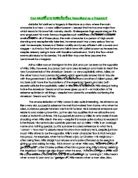
The actions of a character and other stage directions often reveal inner feelings e.g.:Ī action and gesture e.g.

G Willy’s optimism and feelings of hopelessnessĪ Willy tries to teach his sons to succeed in a way that ensures that they will fail.ī Willy’s claim to success in business – this becomes dramatic irony as the audience realises the truth when Linda and his sons do not.Ĭ Charlie is ‘not well-liked’ but he is both successful and generousĭ Willy thinks it important to be well-liked but he says ‘people don’t seem to take to me’ (22)Į Aims to stay at home yet plays begins, at a later date, with him returning exhausted. The various different purposes of repetition appear in:į Willys’ treatment of Linda and the woman Character’s own words reveal their natures and beliefs e.g.:Linda’s naivete for buying the washing machine that had the biggest advertisement.ī Patent untruths e.g.: what Willy has soldĭ Willy talking to himself and talking to someone who is not there.ĭ repeating someone else’s words (there’s always a reason for doing this – also see ‘repetition’ below)


 0 kommentar(er)
0 kommentar(er)
